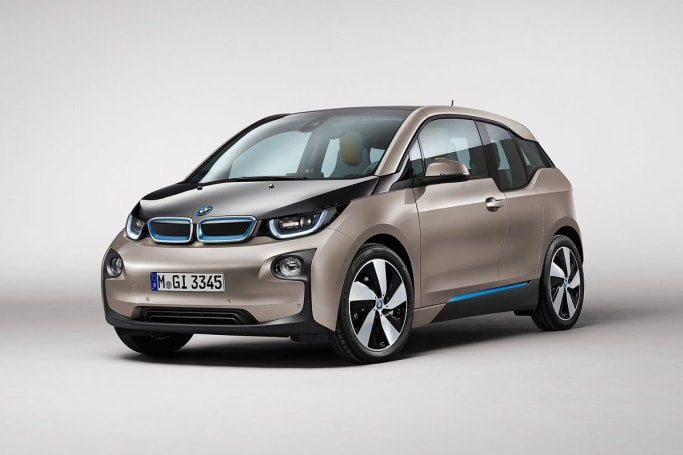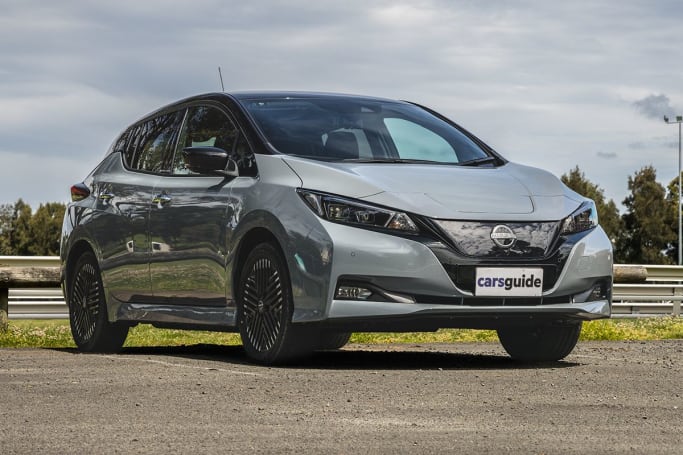.jpg)
[ad_1]
I love you, our CarsGuide readers You are the reason I do this job to inform and engage you and bring you the latest in the automotive world. But I was recently appalled when I wrote an article about the upcoming electric version of the Ford Ranger and one of the first comments on social media criticized the lack of range for this yet-to-be-released Ranger.
The reason I was scared was simple – I hadn’t remembered the range.
At best, the all-electric Ranger will be released around 2028, and I (or anyone outside of Ford) had no way of knowing what range the EV would have six years from now. Still, this dear reader was convinced that the Ranger simply wouldn’t have enough range, which brought me back to the head of the “range anxiety” topic.
Learn more about electric cars
And my mind is telling me that it’s time for us to get over it.
The whole concept of range anxiety was a strong argument five years ago, when there were only a small number of electric cars on sale with a range of around 200 km and limited public charging infrastructure.
But look how far the auto industry has come in the last six years. In 2016, the Nissan Leaf led the electric car market with a range of 172 km, while BMW’s revolutionary i3 EV ran just 200 km between charges.
In 2022, BMW offers several electric models – from the sports sedan i4 M50 to the spacious SUV iX. And while the iX is more than twice the size of the old i3, it manages to be more powerful and boasts more than double the range of 425km for the xDrive40 model.

The public infrastructure has expanded with several companies – ChargeFox, Evie, Jolt and others – offering the ability to top up when you’re away from home (which presumably has a charger installed, as that’s a logical addition when you’re buying an EV). .
The thing is, like the BMW iX, most electric cars today have a range of over 400 km, and that should be enough for most people. Check out this list of some of the most popular models on sale today:
- Hyundai Ioniq 5 AWD – 430 km
- Tesla Model Y – 455 km
- Kia Niro EV – 460 km
- Polestar 2 Standard Range – 470 km
- Kia EV6 GT-Line – 484 km
- Polestar 2 Long Range (single engine) – 540 km
- Tesla Model Y Performance – 514 km
Considering you can charge your car every day at home by simply plugging it in overnight, this means you can start each day with more than 400 km of range. And ask yourself, when was the last time you left home knowing you had to drive over 400km in a day?
While EVs aren’t for everyone and never will be, for the vast majority of Australians, 400km is enough for most people, myself included, for at least a week’s worth of driving. I know this because I don’t have a Wallbox charger at home, so I’m at the mercy of the public charging infrastructure. But given my typical commuting schedule – shopping, school, weekend sports – I’ve rarely needed to find a charger for any of the recent EVs I’ve tested.
I can’t stress that “most people” is the key phrase in that last paragraph, because I just know someone will write in the comments that they drive huge distances every week and an electric car just isn’t going to meet their needs. And that’s good, I completely understand this point of view and completely agree with it. Likewise, I would never recommend that someone looking for a family car buy a Lamborghini Aventador or Mazda MX-5 – there is a huge variety in the new car market for a reason.

The bottom line is that if you regularly drive more than 400 km per day, you should choose a car with a petrol or diesel engine. But if you don’t and avoid an electric car simply because you’re worried about how far it will take you, you shouldn’t.
Car manufacturers are pushing the envelope to see how far they can extend range in an ongoing effort to remove this mental hurdle that prevents many of us from even considering buying an electric car. Mercedes created the EQXX, which traveled more than 1,000 km on a single charge. This is an amazing achievement that shows that there is still a lot of room for improvement in the automotive industry.
But it’s also largely meaningless. Very few people in the world will ever need an electric car that can go that far without recharging. The only way to get rid of “range anxiety” as a concept is not with technology, but with our minds. Electric cars need an attitude adjustment, that’s all.
The sooner we all realize this, the better off we all will be.
[ad_2]
Source link
